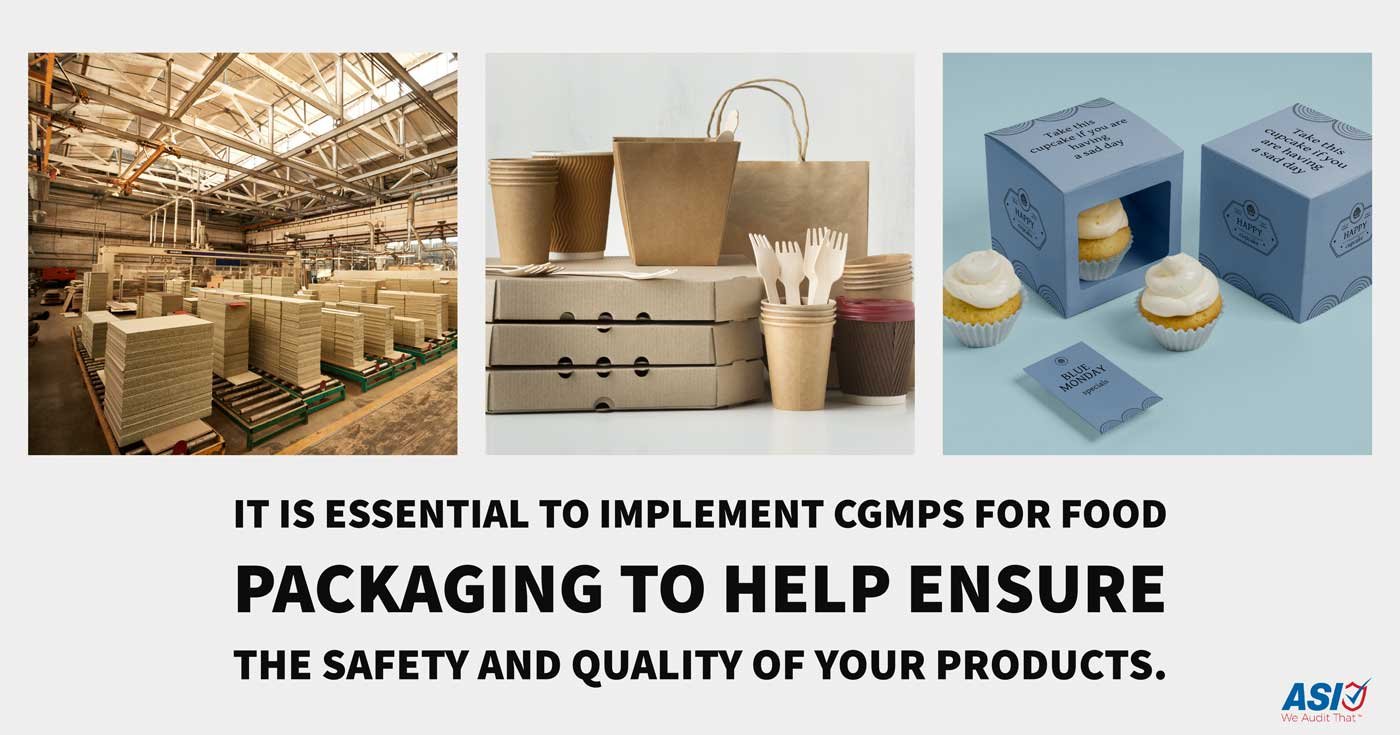Current Good Manufacturing Practice (cGMP) is a set of principles that are designed to ensure the safety and quality of food products. Food manufacturers use cGMPs to control the production of food products from the raw materials to the finished product.
cGMPs for food packaging are designed to ensure that food packaging materials are safe and do not contaminate food products. cGMPs for food packaging include requirements for the selection of raw materials, the manufacturing process, the storage and handling of packaging materials, and the cleaning and sanitation of packaging equipment.
Some of the critical requirements of cGMPs for food packaging include:
- Selecting safe raw materials: Food packaging materials must be made from safe raw materials not contaminated with harmful substances.
- Using a safe manufacturing process: The manufacturing process for food packaging materials must be designed to prevent contamination.
- Storing and handling packaging materials properly: Food packaging materials must be stored and controlled to prevent contamination.
- Cleaning and sanitizing packaging equipment: Packaging equipment must be cleaned and sanitized regularly to prevent contamination.

By following cGMPs for food packaging, food manufacturers can help to ensure that their food products are safe and do not pose a health risk to consumers.
cGMP audits for packaging providers help relevant companies attain regulatory compliance, meet customer demands, improve product safety, quality & consistency, and more.
Other benefits of following cGMPs for food packaging include:
- Protects public health: cGMPs help to prevent foodborne illness by ensuring that food packaging materials are safe and do not contaminate food products.
- Increases customer confidence: Consumers are more likely to trust food products packaged in materials that meet cGMP standards.
- Reduces costs: cGMPs can help to reduce costs by preventing food recalls and other problems caused by contaminated food packaging.
- Improves efficiency: cGMPs can help to improve efficiency by streamlining production and reducing waste.
If you are a food manufacturer or packaging producer, it is essential to implement cGMPs for food packaging to help ensure the safety and quality of your products. By following cGMPs, you can remain compliant, protect public health, increase customer confidence, reduce costs, and improve efficiency, consistency, and, our favorite- improve overall product safety and quality.
Additionally, if you are wanting to take it to the next level to satisfy GFSI certification requirements of retailers or buyers, you may want to consider an SQF audit. The SQF Food Safety Code for Manufacture of Food Packaging is part of the SQF Food Safety family of codes. These are globally accepted, GFSI-benchmarked food safety standards that provide sites with a HACCP based approach to ensure that products meet regulations.
If you are interested in learning more about how ASI can help you with cGMP, please contact us.
